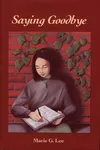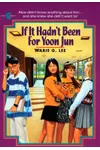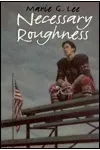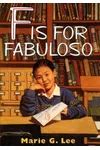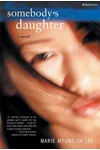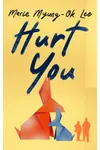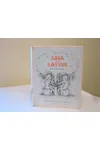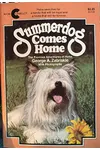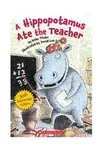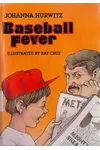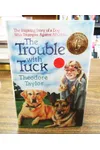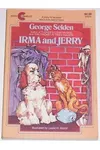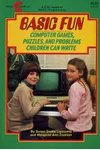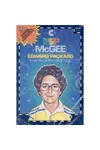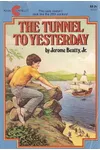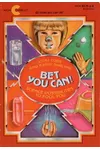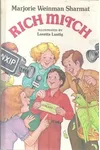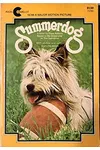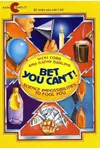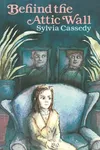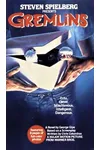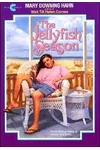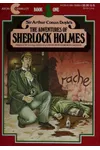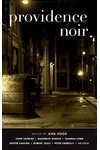Picture a Korean-American storyteller who broke barriers with the first contemporary Asian American YA novel—meet Marie Myung-Ok Lee! A novelist, essayist, and fearless journalist, Lee has ventured into North Korea, co-founded the Asian American Writers’ Workshop, and shaped modern literature with her poignant tales of identity and resilience. Her work dances between humor and heartache, inviting readers into the Korean diaspora’s vibrant world.
From her roots in a small Minnesota town to her role as a Columbia University educator, Lee’s journey is as compelling as her stories. Let’s dive into the life and legacy of this literary trailblazer!
The Making of Marie Myung-Ok Lee
Born to parents who fled North Korea during the Korean War, Marie Myung-Ok Lee grew up in Hibbing, Minnesota, a remote mining town where her family was the only Korean presence. Her father, a physician, and her mother, a visa-secured immigrant, instilled a sense of resilience that shaped Lee’s worldview. At nine, she inherited a typewriter and began crafting stories, dreaming of a literary life in New York. After earning a Bachelor of Arts from Brown University in 1986, Lee briefly worked at Goldman Sachs but quit to freelance, joining a group of Asian American writers to form the Asian American Writers’ Workshop in 1991.
Marie Myung-Ok Lee’s Unforgettable Stories
Lee’s writing is a tapestry of cultural identity, family ties, and the immigrant experience, often laced with humor and sharp social commentary. Her debut, Finding My Voice (1992), written as Marie G. Lee, is hailed as the first contemporary Asian American YA novel. It follows Ellen Sung, a Korean-American teen navigating racism in a predominantly white town, mirroring Lee’s own youth. The sequel, Saying Goodbye (1994), tracks Ellen’s freshman year at Harvard, exploring new challenges.
Necessary Roughness (1996) tackles a Korean-American boy’s struggle with racism through football, while Somebody’s Daughter (2005), inspired by Lee’s Fulbright Scholarship in South Korea, delves into the lives of Korean birth mothers. Her latest, The Evening Hero (2022), is a sweeping tale of a Korean immigrant doctor confronting war trauma and America’s healthcare flaws. Lee’s essays, published in The New York Times, The Atlantic, and The Guardian, blend personal and political, reflecting her North Korea visits and advocacy for Asian American voices.
Her style—lyrical yet accessible—captures the Korean diaspora’s complexities, making her a beacon for readers seeking authentic narratives. Awards like the Friends of American Writers’ Best Book Award and a New York Foundation for the Arts Fiction Fellowship honor her craft.
Why Marie Myung-Ok Lee Matters
Marie Myung-Ok Lee’s impact transcends her books. As a co-founder of the Asian American Writers’ Workshop, she created a vital space for writers of color, nurturing talents like Min Jin Lee and Cathy Park Hong. Her pioneering YA novels opened doors for Asian American stories in mainstream publishing, inspiring a generation of diverse authors. As a Columbia University professor, Lee mentors emerging writers, amplifying marginalized voices.
Her rare access to North Korea—among only 50 journalists since the Korean War—adds depth to her work, offering unique perspectives on war’s lasting echoes. Lee’s ability to weave personal and historical narratives makes her a cornerstone of Asian American literature, challenging stereotypes and celebrating resilience.
- Born: Hibbing, Minnesota, to North Korean immigrant parents
- Key Works: Finding My Voice, Somebody’s Daughter, The Evening Hero
- Awards: O. Henry Honorable Mention, New York Foundation for the Arts Fiction Fellowship
- Notable: First Fulbright Scholar to Korea in creative writing
Snag Finding My Voice or The Evening Hero and dive into Marie Myung-Ok Lee’s vibrant, heartfelt world of Korean-American stories!

